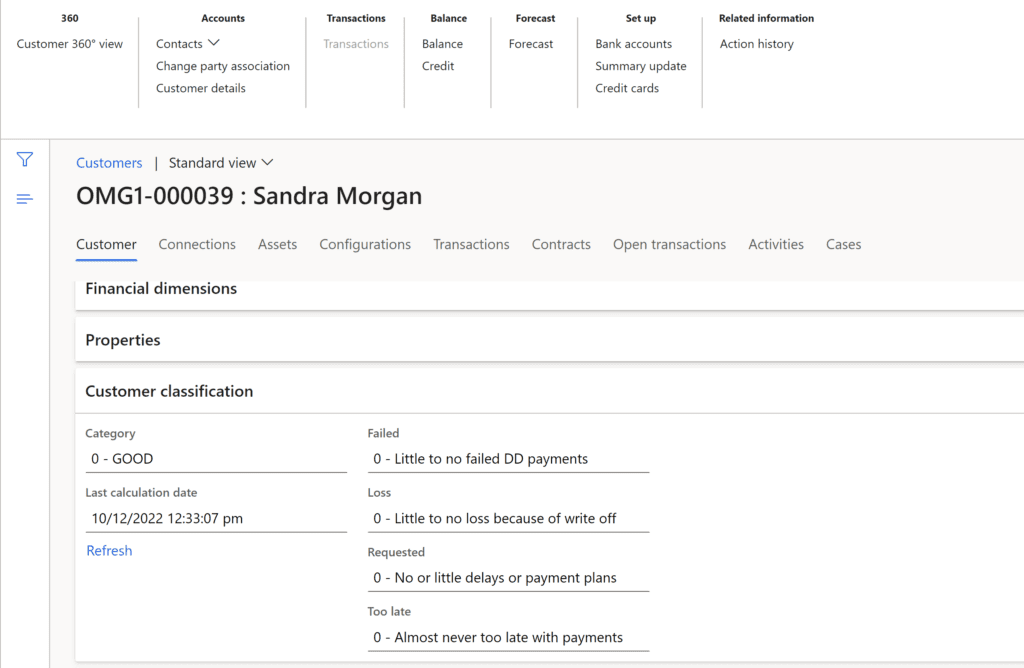How to assure that your customers can continue to pay their energy bills?
Electricity and gas prices are rising. Advance bills of 1,000 euros a month are sought from customers, to continue to afford day-to-day living expenses. Money that not just anyone can spare on a monthly basis, despite the fact that heating is a basic necessity.
Not only is this a tough issue for end consumers, but suppliers face a challenge here too. After all, what if the majority of your customers, can no longer pay your invoice?
Every year, suppliers have to estimate how much gas is going to be needed to keep all families warm in winter. The parameters here are the duration and the intensity of the winter. The longer and colder it is, the more reserves they need to purchase. Not easy to forecast in advance, as it turned out in the winter of 2020-2021.
The winter of 2020/2021 in Belgium and the Netherlands was harsher than predicted in advance, and it also took a long time for spring to really arrive. While gas reserves are normally replenished in spring, stocks were only decreasing in early 2021. Fearing another such harsh winter, reserves were replenished at an accelerated pace during 2021, resulting in high demand.
Source: https://www.anwb.nl/huis/energie/waarom-zijn-stroom-en-gas-nu-zo-duur
Russia has been at war with Ukraine since February this year. As many innocent civilians are victims of this, the EU decided to send financial as well as military help to Ukraine.
To counter pressure, Russia, the biggest gas supplier to the EU decided to supply limited/no more gas. This creates a lot of uncertainty about the supply of gas and oil, causing prices to keep rising.
Electricity can be generated in different ways. Think of coal, gas, biomass, sun and wind or nuclear power. Because gas is so expensive, producers try to generate energy by other means, such as coal. If, at any time, there is more demand for electricity than the above sources can produce, gas power plants have to make up the shortfall.
Owners of gas plants will only do so when the price of electricity is high enough, this is to avoid incurring losses. Because Gas power plants are so expensive to run, the European electricity market decided 20 years ago that the last bit of electricity needed and generated by Gas power plants will therefore also determine the price of electricity. This is to protect the owners of gas power plants. Because when the price of electricity is low, they won’t recover the cost they have to buy natural gas and CO2 rights.
Source: https://www.anwb.nl/huis/energie/waarom-zijn-stroom-en-gas-nu-zo-duur
Leaving your clients literally and figuratively out in the cold is not an option. Counting on government mediation usually takes a long time or is negligible. Taking matters into your own hands as a supplier is therefore the best solution.
You can do so by visiting people’s homes to create a personalized, financially viable plan that ensures they can still spend the winter warm. Your customers will not easily forget the gesture you make as a supplier; helping each other in times of need is not always obvious, whereas it should be. By looking for a solution together, the loyalty of your customers will only grow, which will become indispensable in this rapidly evolving energy market.
It is and remains important that your customers are able to pay their invoices optimally. Because no matter how you look at it, managing a good cash flow as a supplier is essential. An optimized ERP system that helps you with day-to-day operations, billing, but also payments and collections plays a key role here.
When looking at the day-to-day operations of suppliers, there are two ways in which they can support their customers in this process:
Preventively alerting and informing customers remains tremendously important. This means having the ability to forecast debt problems before they arise. By preventing debt scenarios, both customer and suppliers can avoid extra costs. Think of fees attached to a reminder letter or an external party taking over to collect the debt. As a supplier, you give them the opportunity to take preventive measures to cushion the blow of rising energy prices.
As any company wants to keep a healthy financial performance, doing a credit check before formally on-boarding a new customer can be an effective strategy to avoid ending with recurrent debt problems.
This can be done by integrating a health check with public data from credit reference agencies, where you can gain valuable insights on how the prospect has fared to date. These insights can then be used to tailor your offerings and provide support to your customer during these turbulent times. For instance, understanding which customers would benefit from prepayment services or conversion to direct debit payment methods.
Assigning each customer a classification, can provide insight to the company service agents to give tailored messages, services and offers and hence improve the cost-2-serve. This customer classification functionality is based on a score point system tailored to the company objectives and displayed on the 360° customer view with the categories such as: good, medium or bad.
While the main influencer of this scoring are events linked to the payment & debt behaviour of the customer, this information can be useful to prevent recurrent customers falling into bad debt.

Even when an invoice is already out the door, actions can be taken to ensure that customers, identified as risk payers in the customer classification, can fulfil it. If a customer does not pay the invoice on time, the dunning cycle process will start, where reminder letters can be sent to avoid having to reach court actions or applied penalties (depending on each company’s policy or legislation).
Important to know is, that there is a window of opportunity between the invoice and the due date:

For example, when sending an invoice, a supplier can mention what options customers have in case they cannot pay the invoice, for instance the options they have to access support schemes or social tariff depending on the country’s specific policies. Also, an interim reminder of their payment options, between sending the invoice and the due date can help.
With rising prices, well-paying customers may also face unexpected bills. Therefore, having a well-defined approach as a supplier when this occurs, will ensure that your customers can keep their heads above water.
When a customer is in debt, you as a supplier can lend a hand by creating a personal and achievable payment plan. This plan can be proposed via email, SMS or outbound/inbound call.
Although, there is nothing more personal than an employee visiting a customer to sit down together and look at options. To make this possible, suppliers will need to empower their field service agents with an application in which they can set up tailored payment plans.
The MECOMS field customer service app provides a mobile application that enables the customer agents to carry out on site visits to customers with real-time information coming directly from your finance system.
Not only can payment plans be created, the agents will also have the possibility to enter any specific question the customer might have by creating a case or enter a meter read for the customer on the spot.
[ninja_form id=3]

Alex Bongers
Management team
Talk the talk
Stay informed about current events and stay on top of the latest trends for energy suppliers, grid operators, heat-and-water providers.